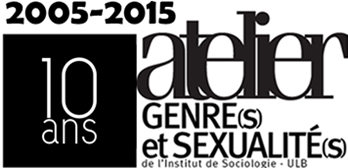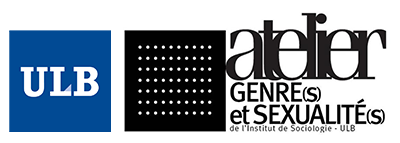Dans la même rubrique
- AGS
- FR
- Le Centre
- Archives de l'Atelier
- 2015
-
Partager cette page
Academia and Identity - when research meets activism
16 mars

Workshop and Lectures
In a diverse society, the formation of identities and groups is subject to a continuing political struggle within public sphere. Identity serves as a source of political commitment, as a catalyst for political mobilisation, and/or as a subject of political conflicts. Identity creates shared interests, and as such makes them tangible. It is also a source of solidarity networks and cooperation, while the boundaries of what constitutes an identity continues to create an ongoing struggle of who belongs and who doesn’t. “The politics of identity” is therefore personal.
Also for scholars belonging to an (ethnical, cultural, sexual,...) minority, identity is a source of commitment. It inspires their research, it often becomes the subject of their research, but it also drives their political commitment. The intrinsic personal and political characteristics of such a research usually demands for a closer involvement by the researcher, not only to the research topic but also to the research subjects. Because of this involvement, it is not surprising that many scholars are (also) involved in political action.
Yet, politics don’t stop at the borders of universities and other academic institutions; they are an integral part of society and therefore universities. As such, identity politics also influence research policy, applications and promotions. Influenced by evolutions and debates within the larger society, universities and university colleges develop gender action plans, diversity plans and non-discrimination policies. These policy measures are of great personal importance to and have a large influence on the career opportunities of scholars belonging to a minority group. Especially for them, participating in these evolutions and debates is even more important, often leading to an even stronger commitment.
However, the tension between an academic career and societal commitment increases, as academic careers are built on research outputs measured by sophisticated bibliometrics. Education and especially societal commitment are barely taken into account within evaluation procedures and promotions.
For this workshop, we want to bring together scholars and activists from different (disciplinary) backgrounds, minority groups and/or countries to discuss the balance between academic work at the one hand, and political commitment on the politics of identity on the other. As such, we would like to exchange:
- experiences: which problems and difficulties do academics experience when combining academic work and political commitment? Which impact does it have on their career opportunities?
- personal and collective strategies: how do academics cope with this tension, which personal balance do they look for, which alliances are developed, and which strategies and tactics are used to achieve this balance?
- analyses of diverse societal contexts: public culture, policy and law towards minorities differ strongly from one country to another. As such, this might influence the personal and collective strategies that academics could use.
TARGET AUDIENCE
This workshop wants to contribute to the broader societal debate on the combination of scientific research with political commitment by exchanging experiences and strategies between a diversity of people. As such, we hope to create a platform where people with different backgrounds could meet and get in touch.
The workshop therefore targets all researchers and/or activists, in Flanders/Belgium and abroad, who are dealing with the politics of identity in one way or another. More specifically, we would like to attract young researchers (PhD students, post-docs, ...) as to reflect on the influence of their political commitment on their (academic) career, and vice versa. Not only could this advance knowledge on diversity issues, it could foster further critical reflections on the own university culture, and the place of a (young) researcher within this system.
LANGUAGE
Working language will be English, but we invite everyone to use their language of preference as to avoid language barriers as much as possible.
